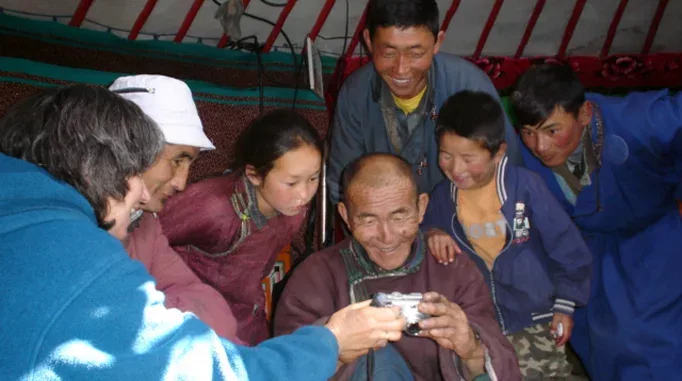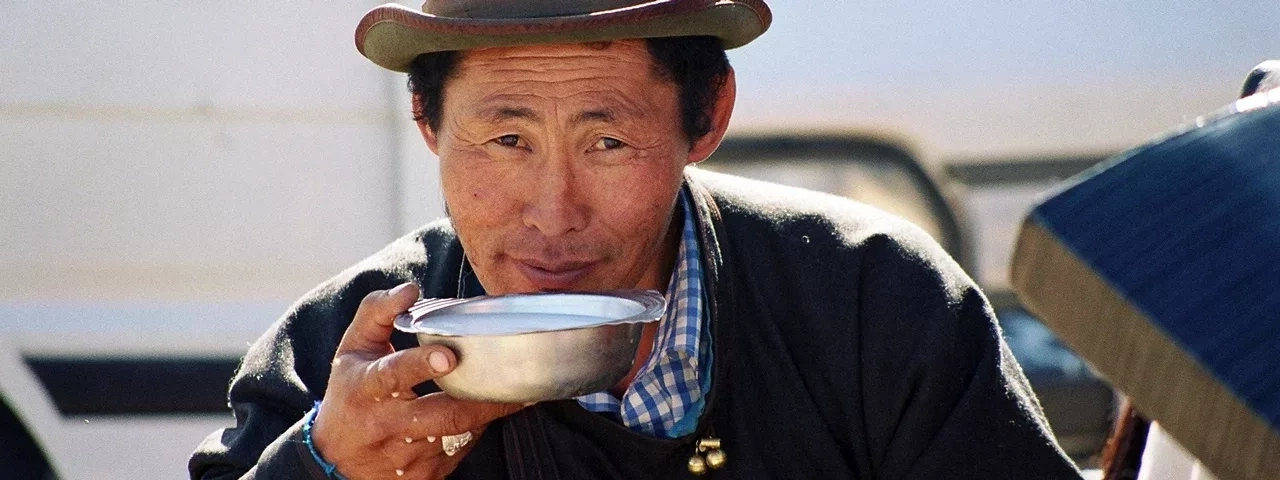Mongolia Guide
Mongolian customs and ethics
Mongolia is a land of ancient traditions, the root of some going back to the Great Zasag, the book of laws that was written in the time of Chinggis Khan, the forefather of the Mongolian nation. The origin of some of these traditions is related to practical needs of the steppe nomads, who depend on the weather, on the structure of their Ger, on the hierarchy within the family and society, and who rely on their livestock husbandry. Later, traditions derived from the Chinese and Russian cultures were introduced and found their way into Mongolian etiquette.

While the Mongolians attribute great significance to these traditions, and even young people in the city follow these social rules, Mongolians are very tolerant people and most will not take offence when a foreigner is unfamiliar with local customs. It is not possible or even expected of you to know all the customs of the Mongols in the course of a short trip.

First and foremost, one’s honour is of great significance in Mongolia. As in any other tour, respect the locals, respect your hosts and respect yourselves. Remember you are guests; you are traveling and visiting the home of a stranger in his country. Refrain from having loud conversations in your own language and avoid loud jokes and laughter. The locals might conclude that they are the subject of a joke!

Try not to be judgmental about the Mongolians’ way of life. Their traditions are different from our own, and at first you might find them peculiar and exotic. Try to absorb and learn from them, and about them, but please leave the criticism, even constructive criticism, until you return home. Accept your hosts as they are; you will be acknowledged with a big smile, with gratitude, and receive pleasant and generous hospitality.

Mongolian etiquette is complex and comprises seemingly endless rules regulating the way people conduct interpersonal communication. The rules are related to the age of the people, their sex, and their social status.

In the following list, we have tried to prioritise the most important traditions, which you should try to remember and follow while in Mongolia.
- Most greetings with strangers are informal, so a nod and a smile, with the greeting, ‘Sain bain uu?’ (‘Are you well?’) usually suffices. The expected response is ‘Sain’ (‘Well’), even if you are not feeling your best that day. It would be odd to ask ‘Sain bain uu?’ to the same person more than once in the same day, as it would be in the US, the UK, and European countries.
- ‘Thank you’ in Mongolian is ‘Bayarlalaa’ (pronounced as Bayrla). Use this phrase often, and you will be rewarded with a big smile.
- Use both hands or the right hand to offer or to take something.
- During formal celebrations or formal occasions, food, tea or vodka should be offered and received with the right hand extended and the left hand supporting the right elbow.
- Passing a snuff bottle is formal etiquette. Always accept it with your right hand and an open palm. You may take a pinch of snuff or just sniff the bottle's top. Before passing the bottle to another person, you should offer it back to its owner. Do not replace the cap firmly before passing the bottle back - simply leave it on the bottle, with the snuff blade inside.
- Roll down your sleeves before taking or giving something, or before being introduced to an older person.
- When giving knives, scissors or any sharp object, offer the handle, never the blade.
- It is not polite to say ‘No thank you’ when the host offers tea, food or dairy products. You should accept it and taste (or pretend to) before placing it on the table.
- When giving any object to anyone, do not throw it but hand it over politely.
- It is impolite to put your feet or shoes on chairs or tables. To show the bottoms of your feet when sitting in proximity to someone else is offensive.
- Refrain from using rivers or other water sources, or near a fire as a place to go to the toilet. These are holy for Mongolians, and this would be considered desecration. Refrain also from doing so on roads, and especially in front of a vehicle.
Mongolians are always happy and appreciative when a foreign visitor takes the time to learn some of their customs and shows this during greetings or visits. Taking the time to read through them and remembering a couple of them will delight your Mongolian hosts and friends.
HOME STAY TOURS
A very special way to discover the lifestyle and traditions of the Mongols is to stay a few days with nomadic families. Accompanied by a translator, for a short while you will become a nomadic family member. Grazing the herds, riding horses and eating the local cuisine are just a small part of the whole experience.
View "Home Stay" tours